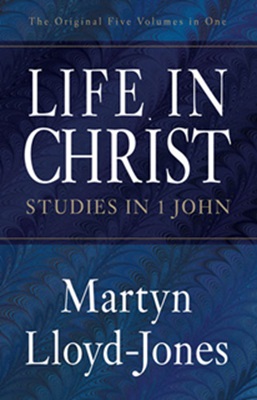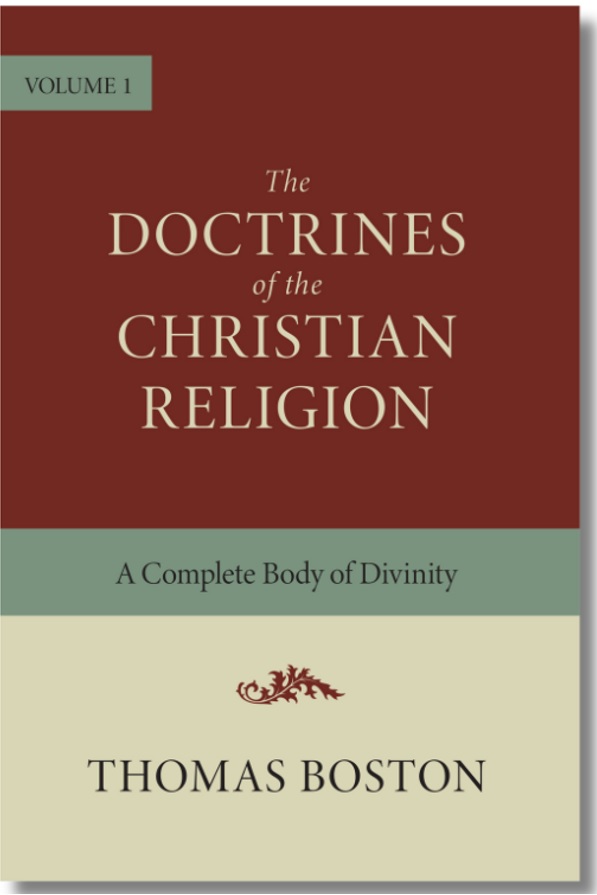 In 1 John 4:13 the Apostle John tells us that God’s gift of His Holy Spirit to us is the evidence or proof that we have truly been reconciled to God through faith in Christ. In v.13 John writes: “By this we know that we abide in him and he in us, because he has given us of his Spirit.” (ESV)
In 1 John 4:13 the Apostle John tells us that God’s gift of His Holy Spirit to us is the evidence or proof that we have truly been reconciled to God through faith in Christ. In v.13 John writes: “By this we know that we abide in him and he in us, because he has given us of his Spirit.” (ESV)
In some ways this is the primary proof of our abiding in God and He in us – that God has given us of His Holy Spirit. This is much the same thing that John said back in the 1 John 3:24, where he tells us, “And by this we know that he [i.e. God] abides in us, by the Spirit whom he has given us.” (ESV)
The Apostle Paul says something very similar in Romans 8:9, where he writes: “You, however, are not in the flesh but in the Spirit, if in fact the Spirit of God dwells in you. Anyone who does not have the Spirit of Christ does not belong to him.” (ESV, Italics added)
Everyone who belongs to Christ by faith has the Holy Spirit dwelling within them. If we have been given the gift of the Holy Spirit, then we abide in fellowship with God. If we do not have the Spirit of Christ, we are not His. It is that simple. In his book, Old Paths, J.C. Ryle (1816-1900) writes:
“The indwelling of God the Holy Spirit is the common mark of all true believers in Christ. It is the Shepherd’s mark on the flock of the Lord Jesus, distinguishing them from the rest of the world. It is the goldsmith’s stamp on the genuine sons of God, which separates them from the dross of false professors. It is the King’s own seal on those who are his peculiar people, proving them to be his own property. It is ‘the earnest’ which the Redeemer gives to his believing disciples while they are in the body, as a pledge of the full and complete ‘redemption’ yet to come in the resurrection morning (Eph. 1:14). This is the case of all believers. They all have the Spirit.” (p.275)
And then (in case that were not clear enough), he adds:
“Let it be distinctly understood that he who has not the Spirit has not Christ. He who has not Christ has no pardon of his sins – no well-grounded hope of being saved.” (Ibid)
The gift of the Holy Spirit and His work within us are in some ways the primary evidence or proof of our salvation. It is by the work of the Holy Spirit that we are born again and made alive in Christ. In John 3:7–8, our Lord Jesus says,
“Do not marvel that I said to you, ‘You must be born again.’ The wind blows where it wishes, and you hear its sound, but you do not know where it comes from or where it goes. So it is with everyone who is born of the Spirit.” (ESV)
Here Jesus clearly teaches us that to be “born again” is to be “born of the Spirit.” And we must be born again.
It is the Holy Spirit who works faith in us so that we believe the gospel of Christ and are saved (Ephesians 2:8; Westminster Confession of Faith 14.1). Likewise it is the Holy Spirit who sanctifies us, so that we are more and more conformed to the likeness of Christ (2 Thessalonians 2:13). It is the Holy Spirit who seals us for the day of redemption (Ephesians 4:30), and is the seal and guarantee of our inheritance in Christ (Ephesians 1:13-14). And He “bears witness with our spirit that we are children of God” through faith in Christ (Romans 8:16).
This is just a sampling of the uniform testimony of Scripture to the necessity of the indwelling & work of the Holy Spirit in everyone who believes. He is (as Ryle puts it above), “the common mark of all true believers in Christ” and “the Shepherd’s mark on the flock of the Lord Jesus, distinguishing them from the rest of the world.” Amen
 Proverbs 9:10 tells us that “the fear of the LORD is the beginning of wisdom.” That being the case, it behooves us to make sure that we understand just what it means to fear the Lord. There are at least two (2) kinds of fear of the Lord spoken of in Scripture. Sometimes it is used to speak of a kind of terror or dread which often results in fleeing away from God. Of the other kind of fear, Albert Martin writes:
Proverbs 9:10 tells us that “the fear of the LORD is the beginning of wisdom.” That being the case, it behooves us to make sure that we understand just what it means to fear the Lord. There are at least two (2) kinds of fear of the Lord spoken of in Scripture. Sometimes it is used to speak of a kind of terror or dread which often results in fleeing away from God. Of the other kind of fear, Albert Martin writes: Some who profess faith in Christ make much of the forgiveness of sins and the avoiding of the penalty of sin (death, condemnation, and hell), but yet think nothing of being set free from slavery to sin, or of the work of god’s grace in sanctification, which are as much a part of our salvation by the grace of God in Christ as are justification and forgiveness.
Some who profess faith in Christ make much of the forgiveness of sins and the avoiding of the penalty of sin (death, condemnation, and hell), but yet think nothing of being set free from slavery to sin, or of the work of god’s grace in sanctification, which are as much a part of our salvation by the grace of God in Christ as are justification and forgiveness. The fear of the Lord is a very prominent theme in the Scriptures, and yet we rarely hear much about it in our churches today. The Scriptures speak of the fear of the Lord or of fearing God literally dozens of times, including no less than 14 times in the book of Proverbs alone! In his book,
The fear of the Lord is a very prominent theme in the Scriptures, and yet we rarely hear much about it in our churches today. The Scriptures speak of the fear of the Lord or of fearing God literally dozens of times, including no less than 14 times in the book of Proverbs alone! In his book,  In his commentary on the book of 1 John (published in one volume under the title
In his commentary on the book of 1 John (published in one volume under the title 
 Where is the doctrine of the Trinity found in the Bible? Perhaps the better question to ask might be, “Where is it not?”, especially when it comes to the New Testament.
Where is the doctrine of the Trinity found in the Bible? Perhaps the better question to ask might be, “Where is it not?”, especially when it comes to the New Testament. How important is
How important is 